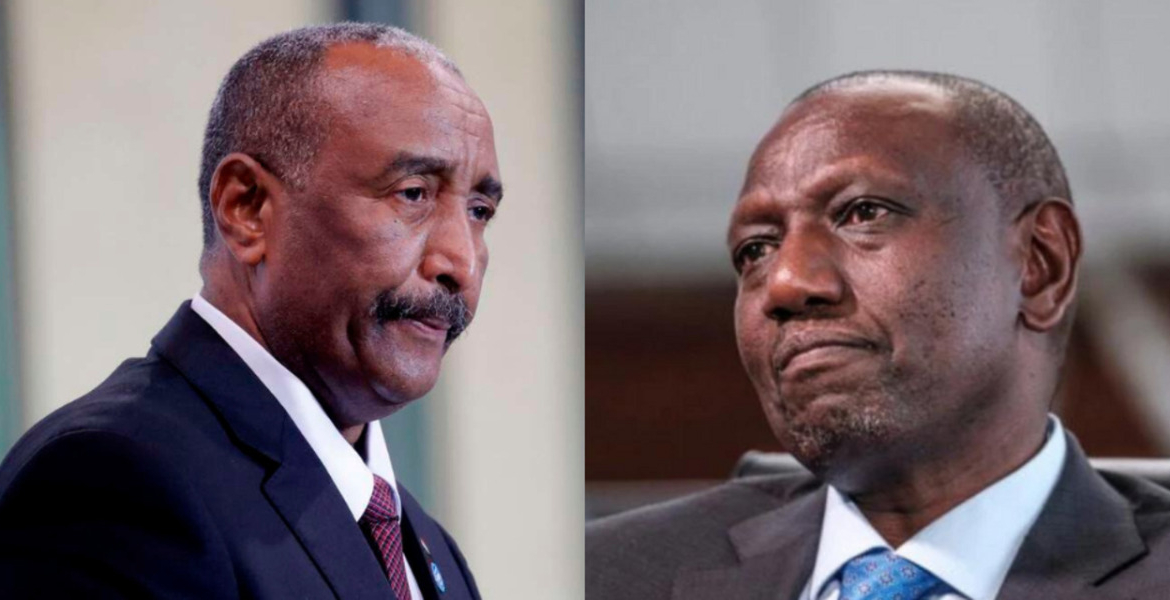
Abdel Fattah al-Burhan, Sudan's Military Leader and President William Ruto
A trade dispute between Kenya and Sudan has intensified after Sudan refuted claims by Kenyan President William Ruto that Kenyan tea continues to be sold in Sudanese markets despite an official import ban.
The disagreement highlights strained relations between the two nations, fueled by political and economic tensions. President Ruto, during an interview at Sagana State Lodge, had assured Kenyan tea farmers that exports to Sudan were ongoing, despite the trade suspension. He stated, "We are still selling tea to Sudan even after they said they are not buying our tea. The market itself has forced them," suggesting a persistent demand for Kenyan tea.
In a swift response, the Sudanese embassy in Nairobi has issued a statement denying any relaxation of the import restrictions, which were imposed on March 11, 2025. The embassy asserts that no Kenyan goods, including tea, have entered Sudanese territory since the ban was enacted. Sudan emphasizes that the trade embargo aligns with its national interests, reaffirming its commitment to sovereignty and economic preservation.
The trade ban was triggered by Sudan’s discontent over Kenya’s decision to host a political meeting involving the paramilitary Rapid Support Forces (RSF). Sudan views Kenya’s engagement with the RSF—a faction engaged in a two-year civil conflict with the Sudanese Armed Forces—as a violation of its sovereignty and national security. The meeting in Nairobi, during which the RSF signalled its intent to establish a parallel government, prompted a strong diplomatic response.
Sudan has historically been a major market for Kenyan tea exports, and the ban has left more than 207 containers of Kenyan tea, destined for Sudan, stalled across the supply chain—from the port of Mombasa to Sudanese docks. The East African Tea Trade Association (EATTA) estimates that the losses amount to over Sh1.3 billion. EATTA Managing Director George Omuga has urged Kenyan authorities to negotiate a temporary reprieve to allow existing shipments to clear Sudanese customs.
Omuga warns that prolonged delays risk both immediate financial losses and long-term damage to Kenya’s reputation in a key export market. The suspension of all Kenyan imports by Sudan has broader implications for regional trade stability, potentially disrupting the flow of food products, pharmaceuticals, and other essential goods. The ongoing civil war in Sudan further exacerbates the humanitarian and economic crisis, as rival factions vie for control.
